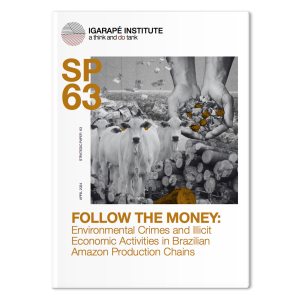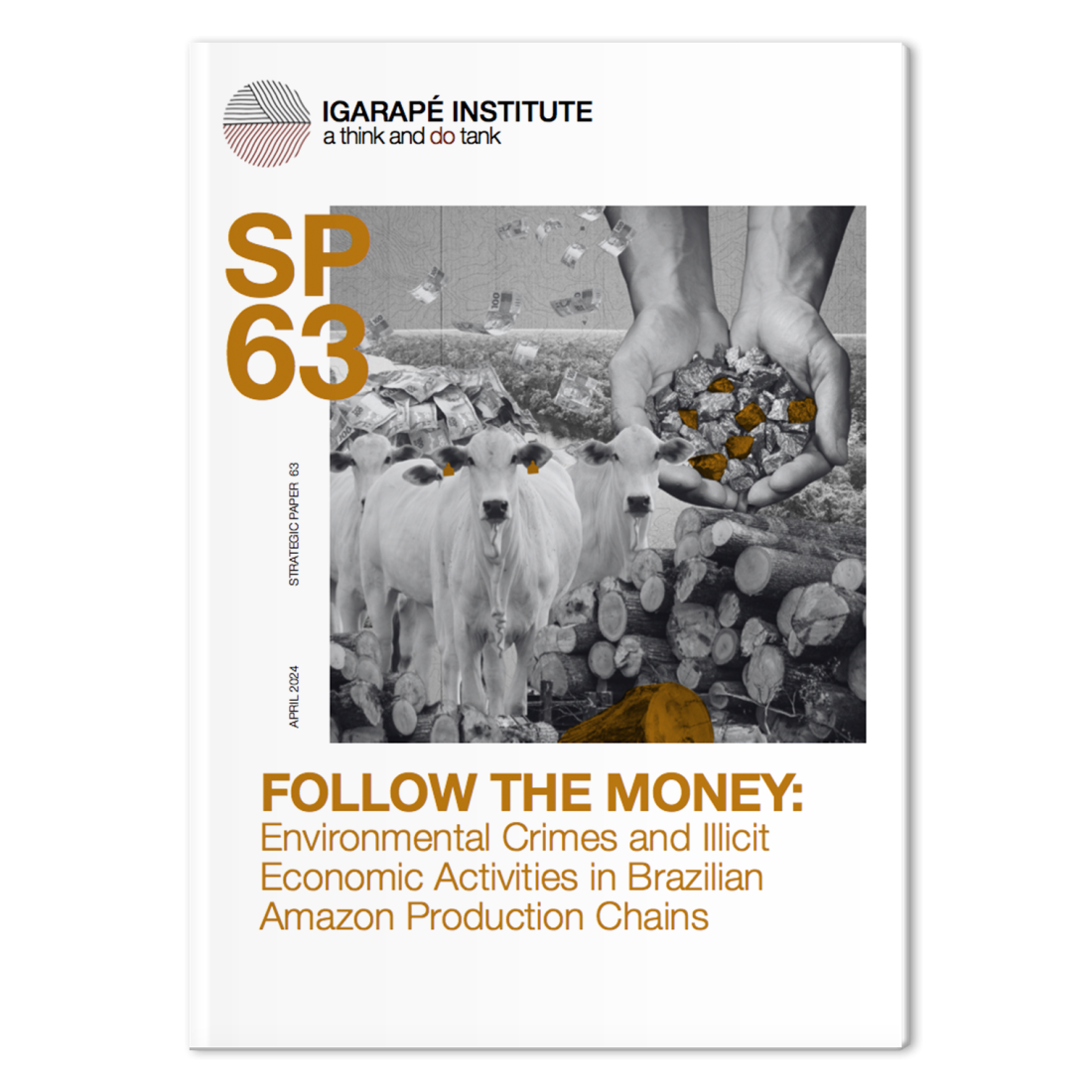Follow the Money: Environmental Crimes and Illicit Economic Activities in Brazilian Amazon Production Chains
 In 2022, according to the National Institute for Space Research (INPE), the Brazilian Amazon experienced 11,594 square kilometers of deforestation, a reduction of just over 11% from the previous year. Much of this deforestation stems from illegal activities driven by sophisticated national and transnational criminal networks that span various economic sectors, from logging to mining, land speculation, and environmental crimes, including illicit practices in the livestock sector. It is critical to note that even companies operating within formal markets are not shielded from these illegal activities. The shadow economies in the Amazon function through a complex network of actors, covering both environmental and non-environmental issues such as corruption, fraud, money laundering, violent crime, and various types of trafficking.
In 2022, according to the National Institute for Space Research (INPE), the Brazilian Amazon experienced 11,594 square kilometers of deforestation, a reduction of just over 11% from the previous year. Much of this deforestation stems from illegal activities driven by sophisticated national and transnational criminal networks that span various economic sectors, from logging to mining, land speculation, and environmental crimes, including illicit practices in the livestock sector. It is critical to note that even companies operating within formal markets are not shielded from these illegal activities. The shadow economies in the Amazon function through a complex network of actors, covering both environmental and non-environmental issues such as corruption, fraud, money laundering, violent crime, and various types of trafficking.
Environmental crime in the Amazon is invariably driven by the financial gain it promises those who commit it. Economic illicit activities not only make these environmental offenses possible but also ensure that the profits are efficiently secured. The Igarapé Institute is dedicated to investigating the intricate connections between environmental crimes and related illegal activities in the Amazon. This study adopts a broad definition of economic illicit activities, including economic-motivated offenses such as financial, tax, and public administration crimes. Against the backdrop of mild penalties and limited enforcement, it is essential to probe the economic illicit activities that enable and perpetuate these crimes. This includes uncovering the financial backers of criminal networks and increasing awareness among the end users of companies whose supply chains are marred by illegalities in the Amazon region.
To achieve this, we examined the Federal Police operations targeting environmental crimes in the Amazon, which were connected to economic offenses. The study explores four types of economic crimes frequently encountered in these operations: money laundering, laundering of environmental assets, fraud, and corruption. Each category is contextualized within the Amazon’s illegal economies, such as unlawful timber extraction, illegal mining, and livestock practices that violate the law within their production chains. The analysis covers different stages of the supply chain, from extraction or production to transport and both national and international marketing, detailing the actions that lead to economic crimes and the methods for committing these offenses, as revealed by the operations.
The study provides a detailed account of the behaviors identified in these operations and the particularities of each production chain, revealing how criminal practices operate. The aim is to support the efforts of various agencies involved in regulating these chains and to offer insights for the development of public policies designed to prevent and curb such crimes.
Protecting the Amazon calls for a comprehensive response that actively deters the commission of environmental crimes and the associated illicit economic activities. Financial investigations play a critical role in identifying these offenses and their perpetrators, enabling rule of law and the protection of the forests and their inhabitants. Understanding and disrupting illicit economic activities is an essential condition for halting the criminal destruction of the forest.
Read the publication



